The Baylor University revised “Animals on Campus Policy” inhibits the feeding of any cats on campus property. Baylor originally issued the “Animals on Campus Policy” in December of 2009, and it was last revised in June of 2023, with the content reportedly being pushed and publicized to students, faculty, and staff in May of 2025. The purpose of this policy is to address the health and safety concerns that animals pose to the campus community, with things such as allergies, disruptions, injuries, disease transmission, and damage to property. Makes sense.
Most of the policy addresses things like service animals in campus classrooms, pets in dormitories, and information about the possible wild animals on campus. However, on page six of the Baylor policy, it states, “For safety, feral cats or loose dogs without owners should be treated with the same caution as a wild animal.” This policy fails to mention pre-existing community cat colonies on campus by not assigning them definitions nor establishing their protections for their current daily habits. If these habits and protections are still in place, Baylor has simply failed to mention it.
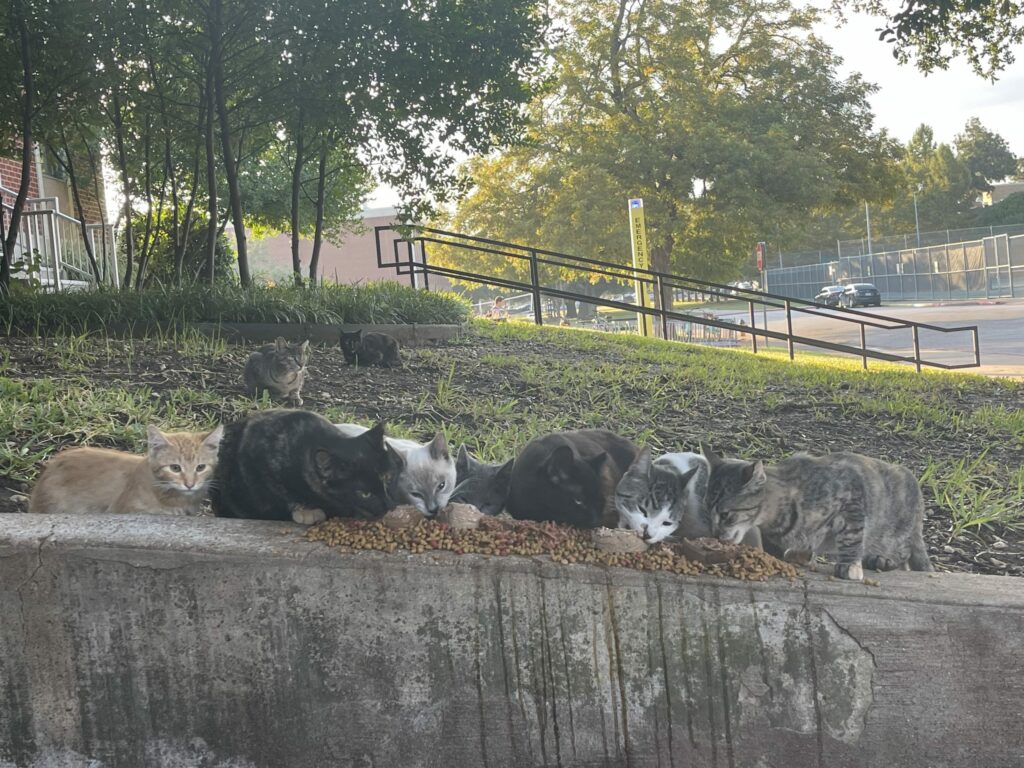
I read through the City of Waco’s Municipal Codes, specifically Chapter 5 on ANIMALS, and they define a community cat as any free-roaming cat, regardless of socialization or sociability, cared for by one or more known or unknown residents of the immediate area. Baylor cannot morally, ethically, or legally ask people to stop caring for community cats, when they are recognized as legal entities within city municipalities.
From Chapter 5, Section 129, the City of Waco defines negligent care as failing, refusing, or neglecting to provide any animal in a person’s charge or custody, as owner or otherwise, with proper food, drink, shade, shelter, or veterinary care as may be necessary.
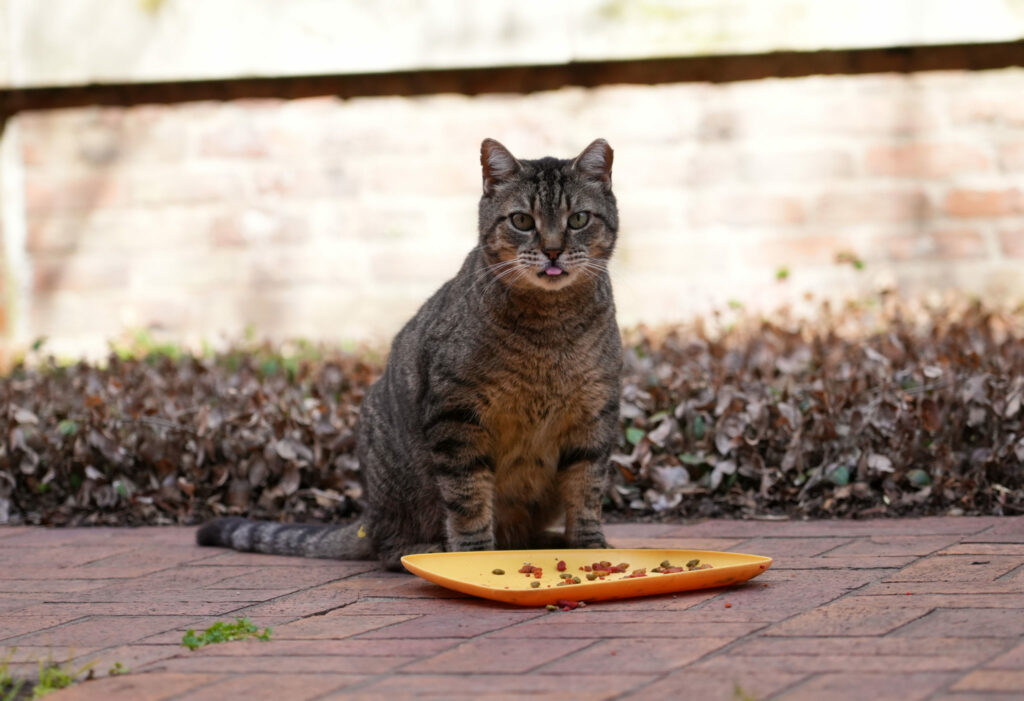
Animal Birth Control of Waco has submitted a proposal to Baylor administration that would allow them to officially manage the campus cat colonies while addressing the university’s concerns about other wildlife. The controversy comes at a particularly sensitive time for the Waco community.
In May, two cats were found shot and hanged from utility lines near the Baylor campus, sparking widespread outrage. Not to mention, Chase the Blue Heeler puppy was just saved from an abusive owner in Lacy Lakeview and is now living with Officer Nathan Rodriguez, who says he “seems very happy in his new home.”
On Friday, a volunteer with Animal Birth Control of Waco arrived to feed cats at one of several colonies she regularly visits on campus. The volunteer was met with a pest control worker, who allegedly told her Baylor University had hired his company to trap and relocate all the feral cats on campus. Carrie Spivey, executive director of Animal Birth Control of Waco, says the cats in question aren’t just strays — they’re part of a managed colony program. Spivey says that relocating these cats would be both illegal and inhumane under Texas law. The cats have become an integral part of campus life, with students regularly interacting with them, taking photos, and giving them names.
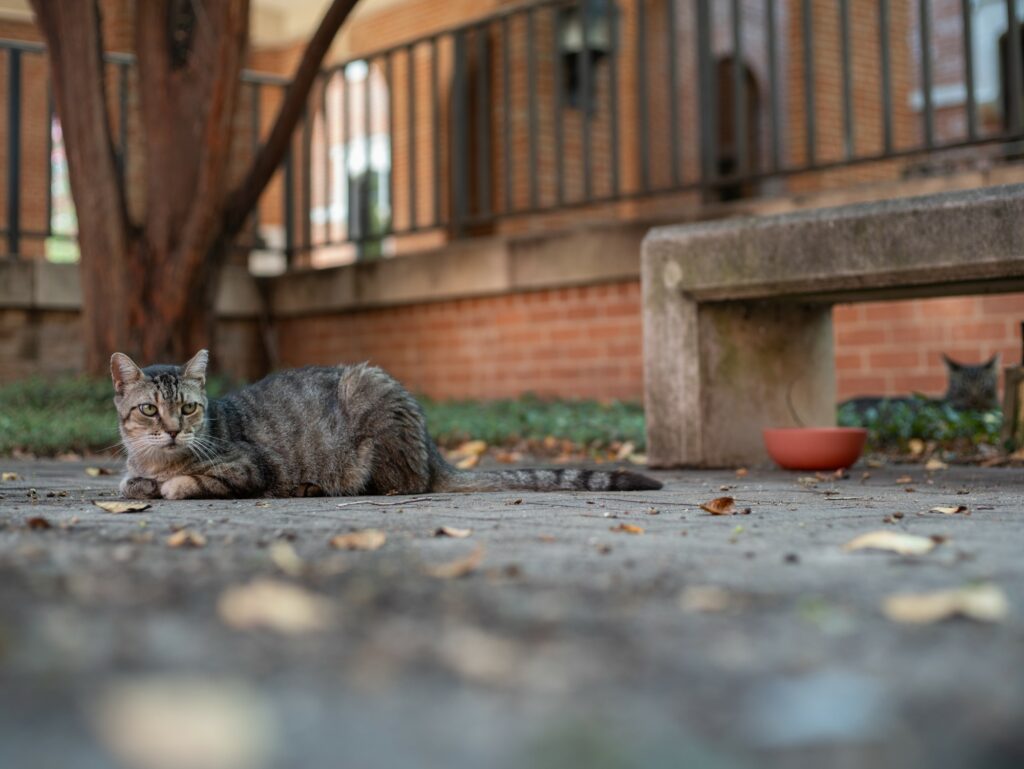
While the cats are still alive and well, how long will Baylor be keeping them around? Feeding stray animals is not a crime. College aged students should know to not interact with dangerous, wild animals. Finally, I’d rather care for helpless, innocent creatures than worry about infrastructure with a budget for cleaning.
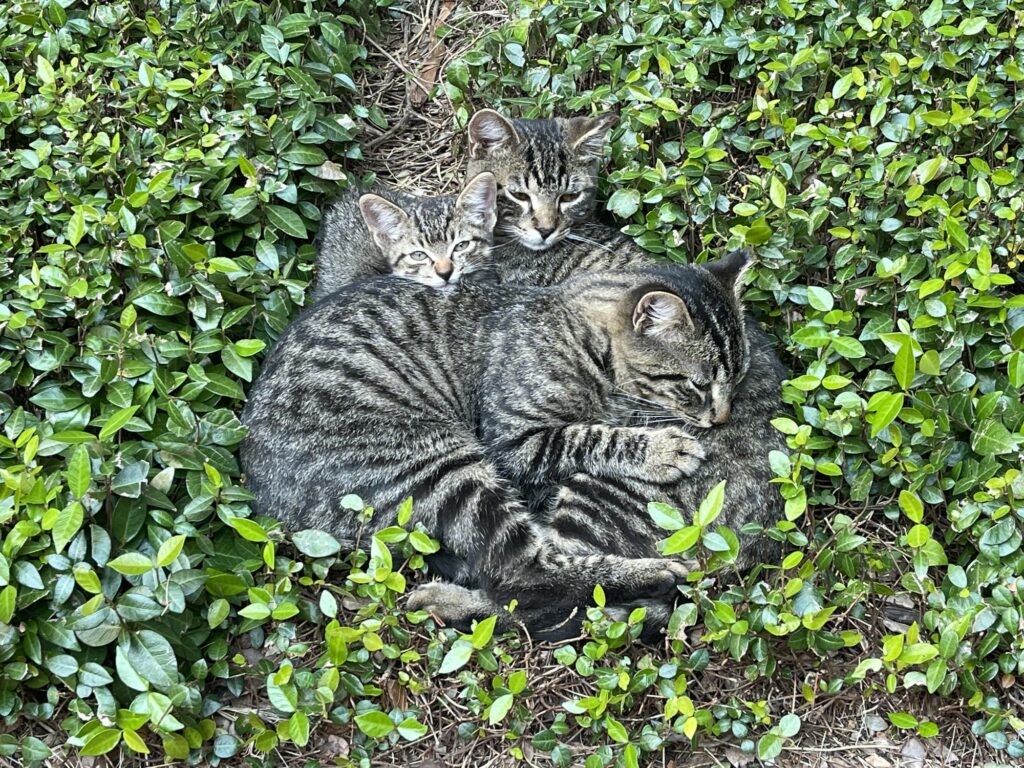
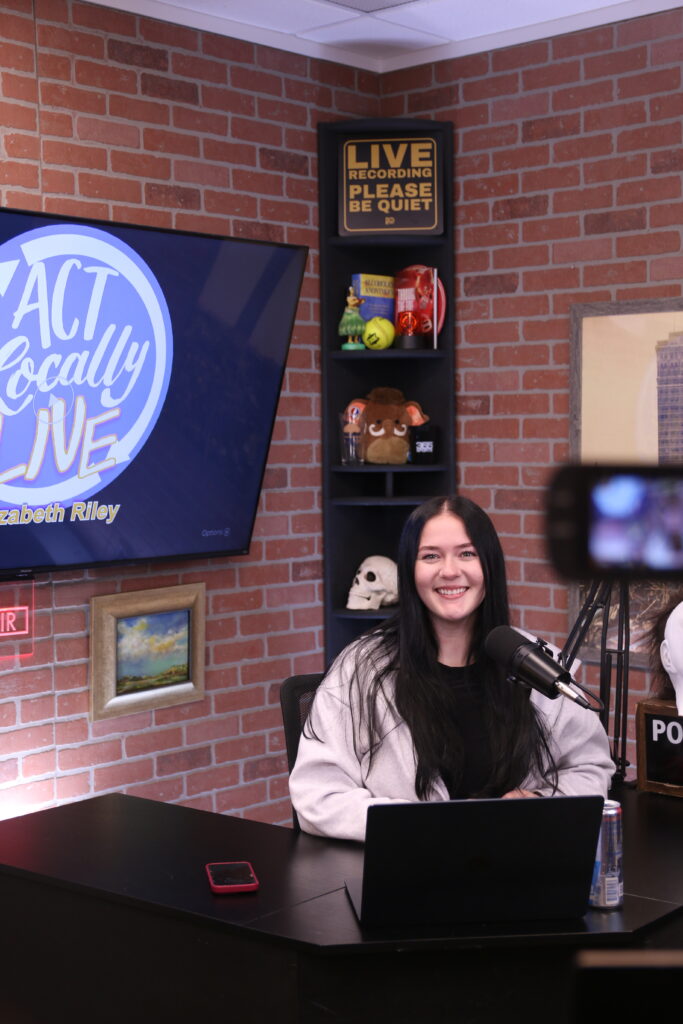
Elizabeth Riley hails from Tennessee and is a graduate of English Literature and Professional Writing & Rhetoric from Baylor University. With passions in archival preservation, communal connection, and women in sports, she writes because it matters, with hopes of bridging villages and fostering revelry amongst them.
Baylor University’s campus looks a little different at the moment. There are fenced-off portions of campus undergoing obvious reconstruction, accompanied by the sights of orange cones and the shouts of crew workers. A major project at the heart of campus that is causing much of this congestion is a huge step towards Baylor’s future.
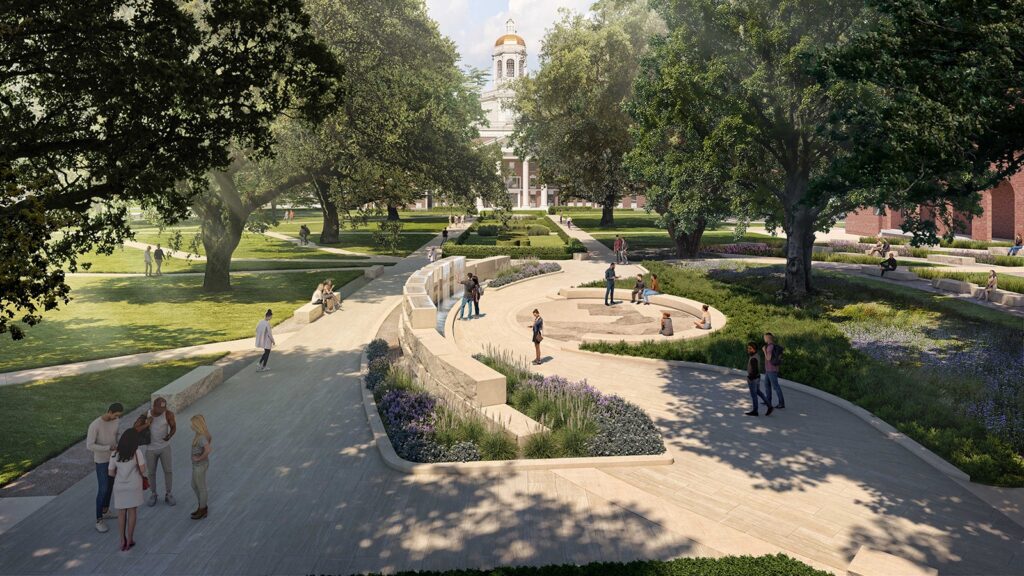
The Memorial to Enslaved Persons is restructuring Founders Mall to acknowledge the immoral use of chattel enslavement during the building of Baylor’s original campus in Independence and the activities of daily life for nearly two decades. On Baylor’s ‘Background & History for a Memorial to Enslaved Persons’ webpage, it states, “It is an acknowledgment of a challenging part of our history while helping us see the need for Christian repentance while we press toward renewal, reconciliation and restoration.” Unfortunately, this isn’t the only accountability Baylor needs to take.

Previously, Baylor University and the City of Waco attempted to reconcile with Indigenous populations that originally inhabited the area. In October of 2020, Baylor authorized research on the history of Baylor’s land and its connections to Indigenous People, and in November of 2022, the University presented a Land Acknowledgement during Native American Heritage Month. In May of 2022, the Baylor Board approved a four-phase plan to address priorities identified by the Commission on Historic Campus Representations:
Phase One is complete, with the new Campus Experience Project.
Phase Two formally began February 20, 2024, with the ceremonial groundbreaking for the Memorial to Enslaved Persons. This phase also includes additional historical context being placed around the existing Judge Baylor statue, connecting his history of enslavement with those individuals recognized by the Memorial.
Phase Three will include enhancements to Speight Avenue that explain how the land upon which Baylor sits evolved and was developed, often at the expense of communities and individuals already occupying the property.
Phase Four will feature improvements along the Quadrangle.

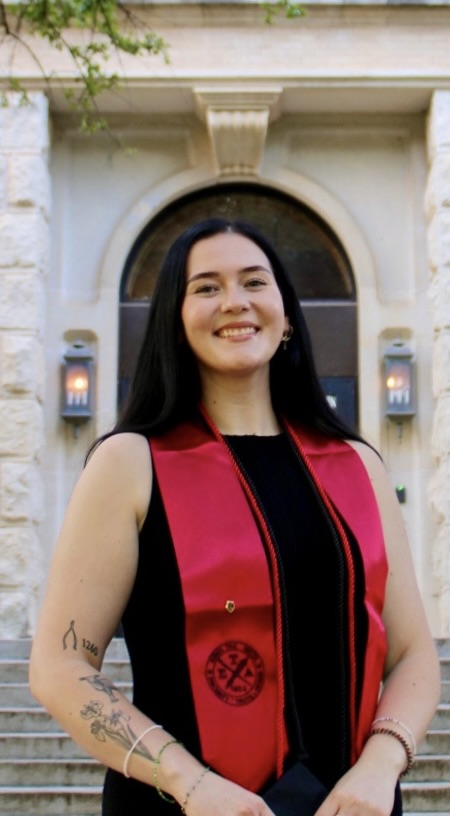
Elizabeth Riley hails from Tennessee and is a graduate of English Literature and Professional Writing & Rhetoric from Baylor University. With passions in archival preservation, communal connection, and women in sports, she writes because it matters, with hopes of bridging villages and fostering revelry amongst them.
We turn our calendars to August, the school year starts, and college football kicks off!

Local Wacoans should prepare for thousands of Baylor University students making their way back into town the week of August 18th, with classes starting on Monday, August 25th. It’ll be a quick turnaround for the Bears, with the first football game of the season taking place that Friday!
Baylor’s football team will be facing Auburn University for the start of the 2025-2026 season. The last matchup between these teams was in September of 1976, in which Baylor came out on top by one point. We hope head coach Dave Aranda and the Bears can put a bigger spread against the Auburn Tigers!
Under McLane Stadium’s lights on a Friday night, the Bears will be ‘blacking out’ McLane Stadium to celebrate their first week back and the start of a new season. Baylor’s football team is expected to have a substantial season this year, but promises have been made before. It’s widely understood that Baylor fans are expecting nothing less than a Big 12 Championship from Coach Aranda and the Bears.
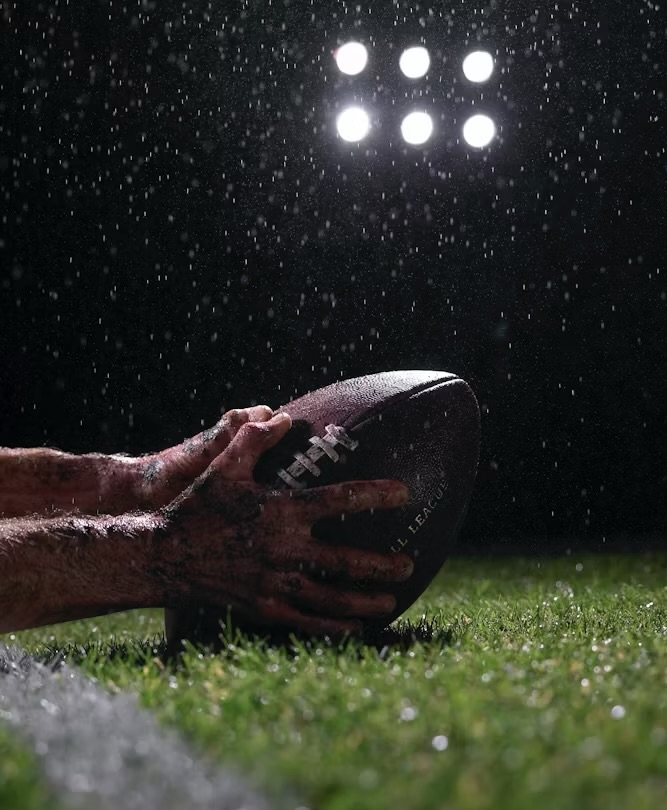
Aside from this rare matchup against an SEC opponent, the Bears have a stacked schedule with seven home games on the docket. Schools like Samford, Arizona State, Kansas State, UCF, Utah, and Houston will be making their way to Waco throughout the season.
Students and alumni are looking forward to the Halloween Homecoming matchup against the University of Central Florida, which is a new addition to the Big 12 conference. On Saturday, November 1, 2025, expect hordes of hungover college kids dressed in their costumes from the night before, cheering on the Bears as they take on a new rival.

Elizabeth Riley hails from Tennessee and is a graduate of English Literature and Professional Writing & Rhetoric from Baylor University. With passions in archival preservation, communal connection, and women in sports, she writes because it matters, with hopes of bridging villages and fostering revelry amongst them.
Dozens of college students shuffle around tight corners of an overpacked shed, the twelve foot U Haul trailer filling the center of the space. Hockey players stand toward the trucks, heaving hot breaths into bright balloons, almost unrecognizable without jerseys, last names, and numbers. Ice Girls dance around the trailer, securing streamers to bare railings. Photos are snapped, videos flicked, and chats sent to the rest of our crew, informing them of the progress on our Homecoming parade float. The Baylor Ice Girls is a group of female supporters, cheerleaders, and organizers for Baylor Hockey, responsible for things such as filling water bottles between periods, creating care baskets for injured players, and bringing the spirit to every game. As the sun sets on float decorating, we add our final touches, preparing to party at sunrise the following morning.
We meet bright and early, but there is no light. We are simply there early, contemplating how Baylor’s Homecoming has been historically successful when college students are asked to be up before the sun. Loading our teams into two trucks and a trailer, we trek toward downtown for the celebration of the morning. With the parade flowing on Austin Avenue, local Wacoans line the streets of downtown. Children flock to the curb with buckets and baskets open, begging to be filled with candy. Parents and families sit back in lawn chairs, sipping on mugs of caffeinated fuel. Familiar faces of Baylor students are scattered among the crowd, avoiding the mass of bodies on campus.
Questions rise from the crowds as we pass, “Baylor has a hockey team? Is it ice hockey? Where do they play?” Yes, Baylor does have an Ice Hockey team! The current team was revived for the 2021-2022 season, successfully attracting players and fans for the last three years. Alongside this group, the Baylor Ice Girls became a social club for female Baylor students interested in hockey, aiming for the sport to thrive on campus. These two clubs run separately, but we deeply depend on one another for functioning.
Turning down 5th Street, the sun is rising higher, the music is louder, and the energy from our Ice Hockey float hits another wind. Bags of candy are tossed between trucks to prepare for the second wave of sugar-seeking children. We pause to rehydrate our fracturing voices and rest our sore limbs, worn out from screaming, waving, and throwing sweets through the procession. Hours of preparation flew by with the parade ending before we knew it.
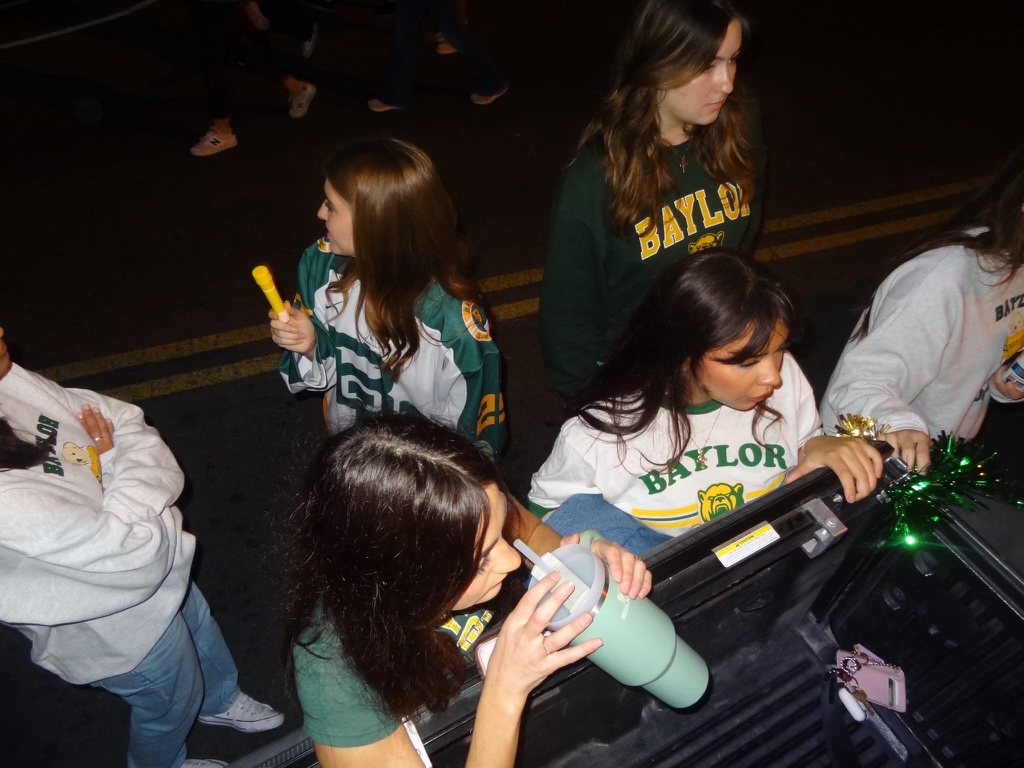
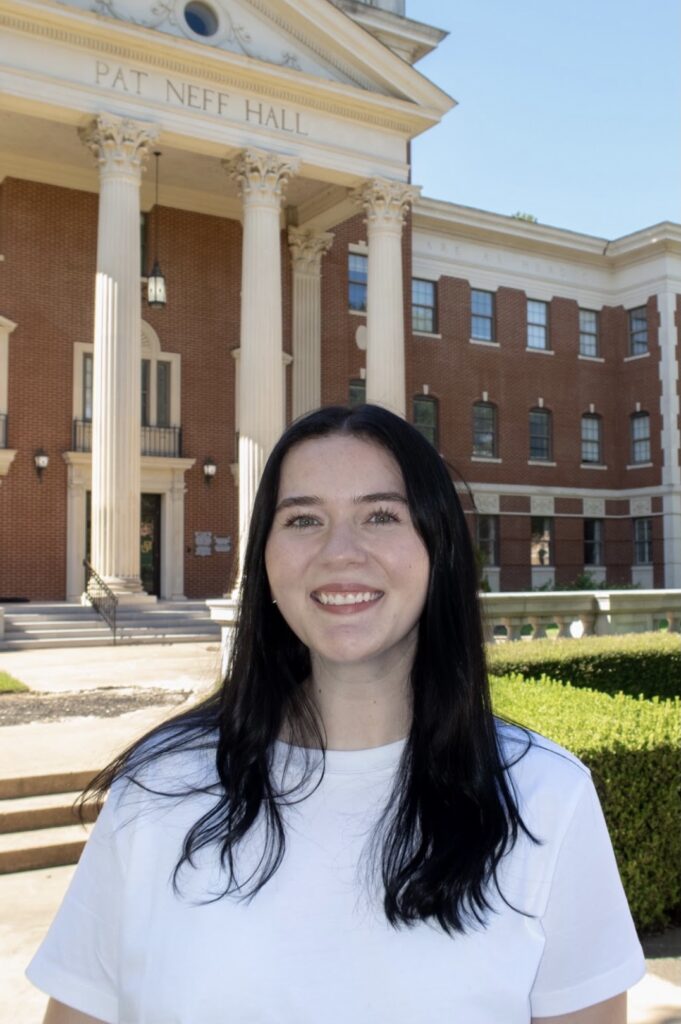
Elizabeth Riley hails from Tennessee and is a senior double majoring in English and Professional Writing & Rhetoric at Baylor University. She works as a Transcription Assistant at the Baylor University Institute for Oral History and is President of the Baylor Ice Girls for the 2024-2025 season.
The Waco History Scavenger Hunt, hosted by Waco History to kick off the celebration of the city’s 175th anniversary, began with beautiful weather on the weekend of September 7th, enhancing the enjoyment of our historical exploration. The morning started at the Saturday Farmers’ Market, where participants registered for the event, grabbed breakfast, and enjoyed live music.
The first stop in the scavenger hunt highlighted the early settlements on the Brazos, which included the Indigenous Waco tribe. This permanent settlement is believed to have been established as early as the 1700s, with the Waco people building bee-hive-shaped dwellings and cultivating crops such as pumpkins, lima beans, and corn. The Mexican government protected the Waco from a threatened raid involving Stephen F. Austin and his troops, which was ultimately resolved through a peace treaty. Over time, the Waco people were decimated and relocated by disease and white settlers, eventually being pushed to areas in Oklahoma.
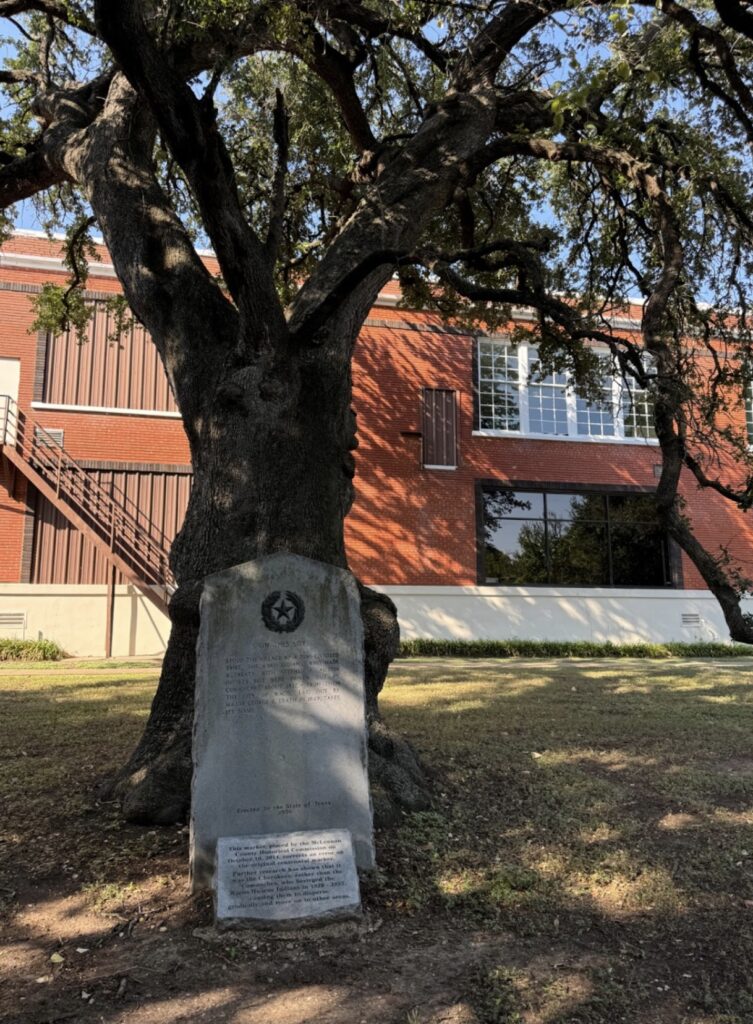
This historical marker is placed outside the Taylor Museum of Waco and McLennan County History, which is currently undergoing extensive renovations to function as a research and learning center. The museum’s structure itself holds a rich narrative, as it was originally the first African American school in Waco. With a breeze flowing through the leaves of the massive trees, it feels like hallowed ground—an unexpected surprise in the midst of bustling Waco.
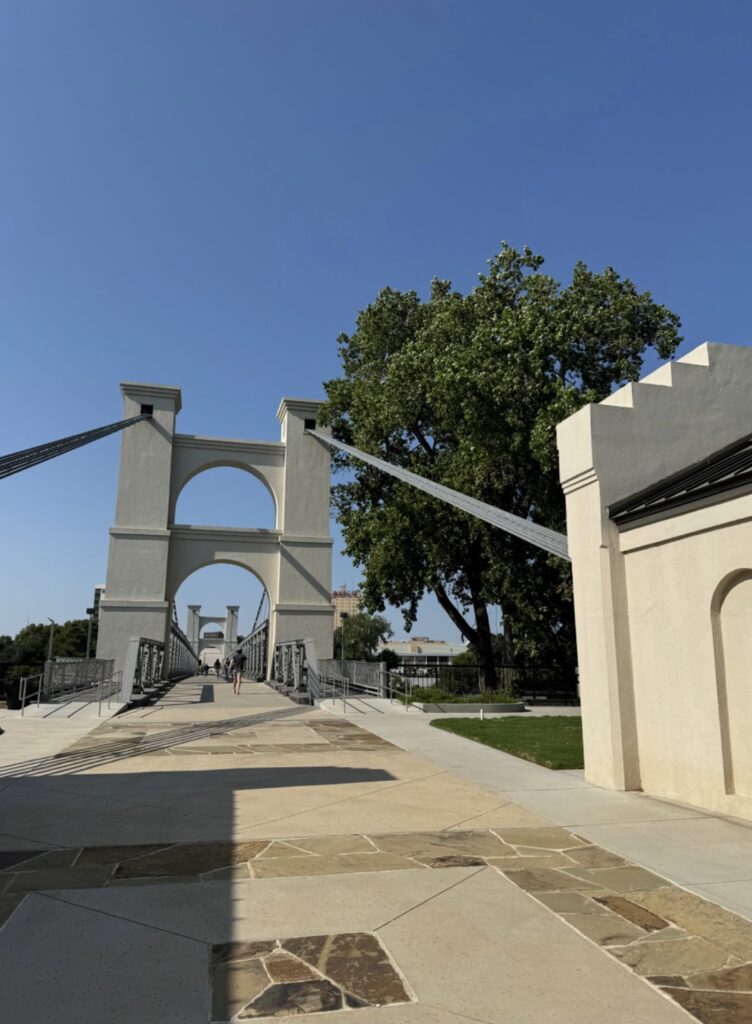
In addition to the Farmers’ Market and the Waco History Scavenger Hunt, the 2.4-mile open-water swim meet, “The Beast of the Brazos,” was taking place in the river that flows through our city. The Brazos River played a vital role in the development of Waco. Its shallow riverbeds allowed cattle drivers traveling along the Chisholm Trail to cross the 800-mile-long waterway. When the suspension bridge was constructed over the Brazos in 1870, the increased traffic brought immediate economic benefits, cementing Waco as the cotton and cattle capital of Texas. By the late 1800s, Waco was already rivaling the size of, offering ample opportunity, entertainment, and connectivity.
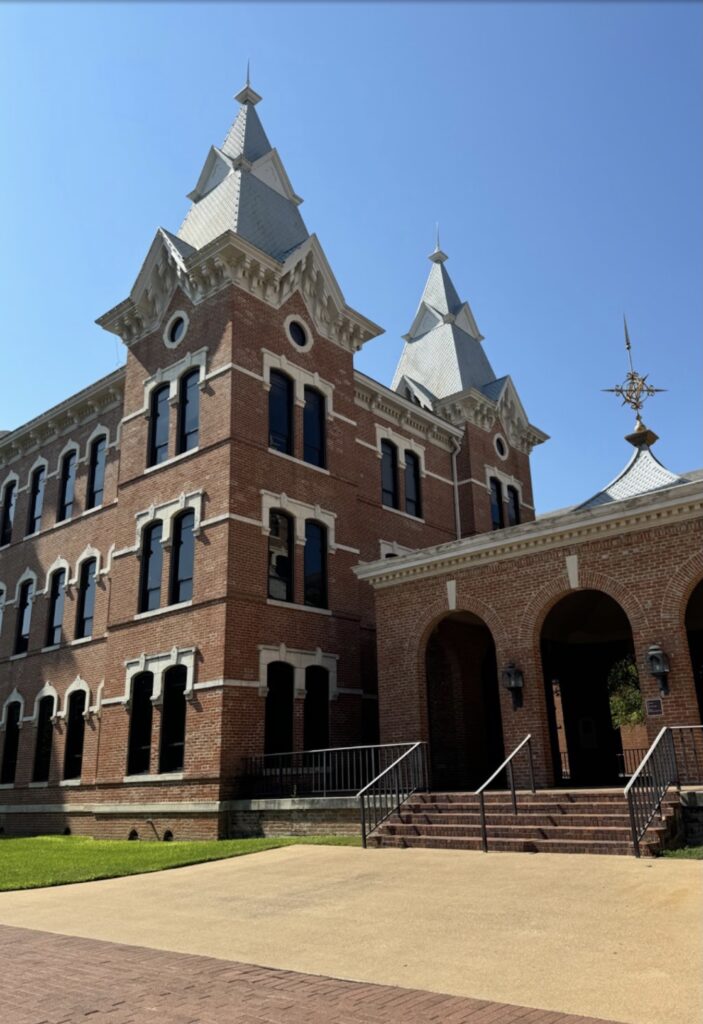
Soon, Waco became a hub for education. Baylor University moved from Independence in 1886, merging with Waco University. The resulting institution, centered in Old Main, provided classrooms, offices, and laboratories. Old Main was originally referred to as “Main Building” due to its central role in student life. Prior to the integration of Baylor University, McLennan Community College, and Texas State Technical College, the only educational option for Black Wacoans was Paul Quinn College, known as the “Athens on the Brazos.” Each of these institutions has significantly shaped Waco’s educational landscape.
After the Civil War, Black Wacoans pioneered their own spaces for opportunity, entertainment, and connectivity due to persistent racial discrimination. New Hope Baptist Church became a gathering space for African Americans and developed a renowned music program. The church nurtured talents like Jules Bledsoe, an international opera star. The current New Hope building, completed in 1923, stands as a symbol of resilience and optimism, as reflected in its name.
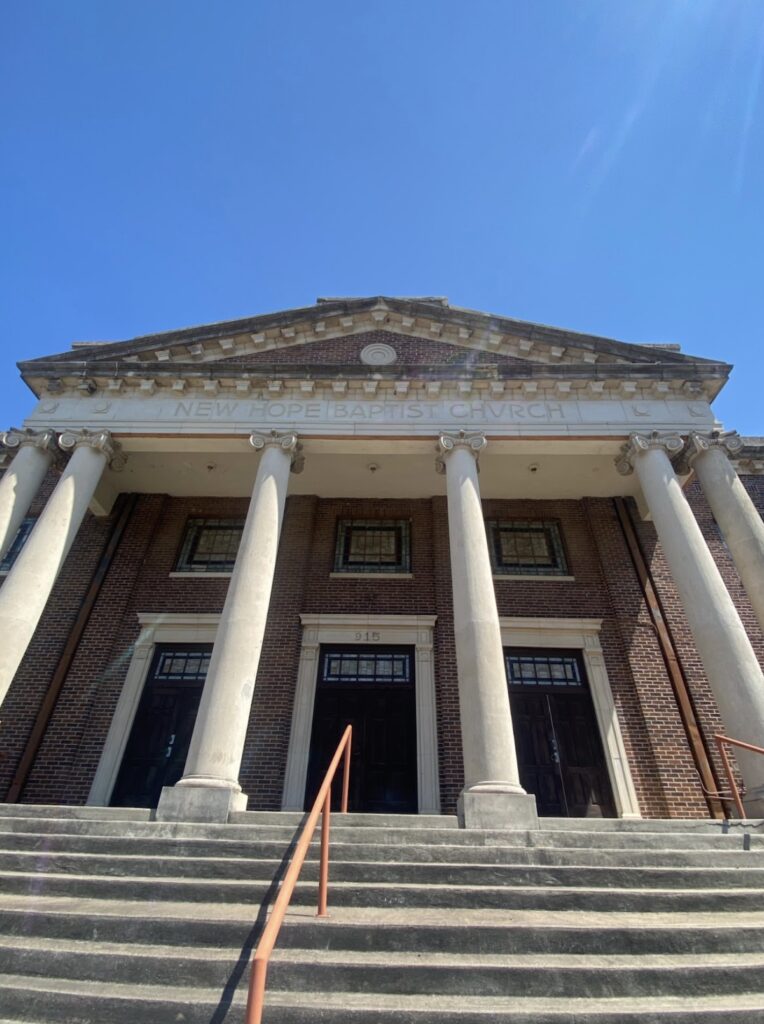
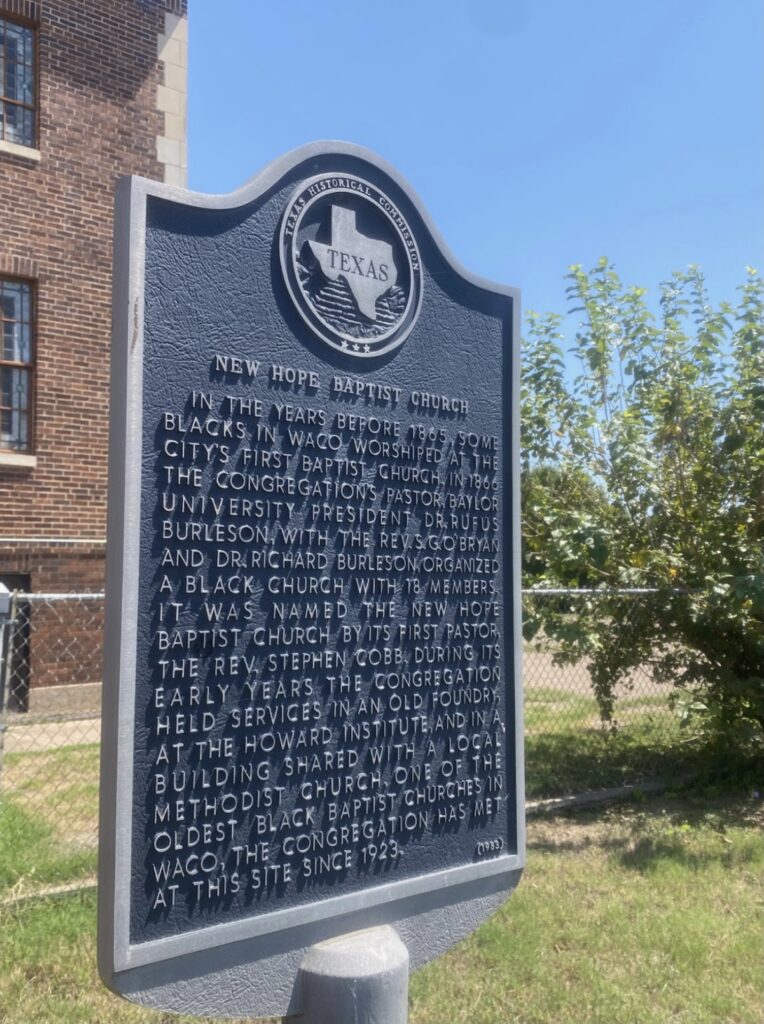
The Waco History Scavenger Hunt opened my eyes to many underrepresented and untold narratives of Waco. Gaining a deeper understanding of this city has fostered a greater appreciation for how our community has developed over time. Getting outside and involved in events like this is vital to cultivating community. Without participating in this event, I would not have witnessed the families, college students, and volunteers exploring the town to uncover stories that explain and shape their own experiences today.
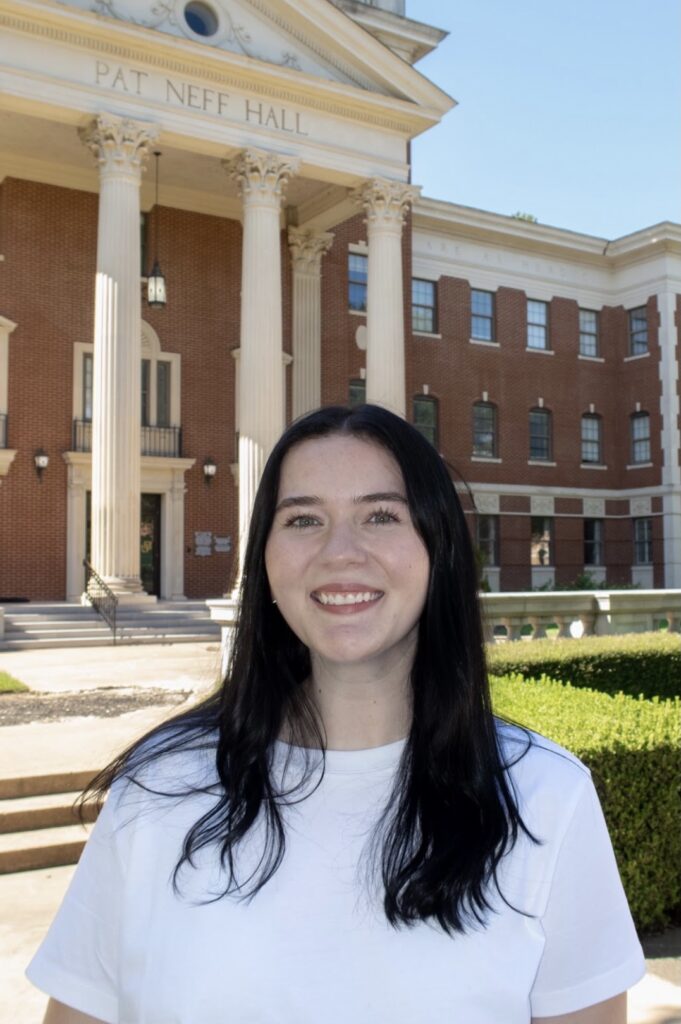
Elizabeth Riley hails from Tennessee and is a senior double majoring in English and Professional Writing & Rhetoric at Baylor University. She works as a Transcription Assistant at the Baylor University Institute for Oral History and is the President of the Baylor Ice Girls for the 2024–2025 season.
By: Elizabeth Riley
Back to school season can be overwhelming while acclimating to new routines and projects. As the weather begins to cool and our lives become packed with responsibilities, it is important to take time outside, surrounding ourselves with all the people, places, and events that Waco has to offer. The start of the semester also brought around 3,000 freshman University students to Waco. The greatest way to get comfortable with the city would be to get involved in the community in many ways.
Homework
Saturday, September 7, 2024: Waco History Scavenger Hunt
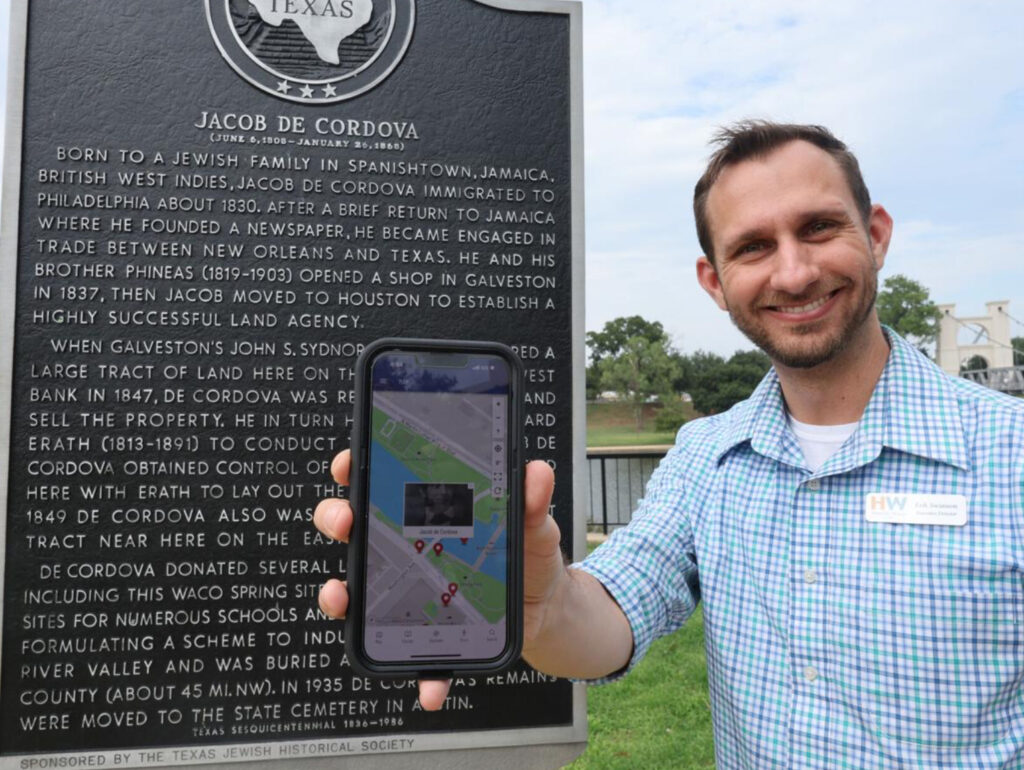
The Waco History Scavenger Hunt is a self-paced, online based activity, in which participants travel to historic locations across Waco, take pictures to post on social media, and enter the chance to win prizes. This activity can be started anytime from 8:30 am to 11:00 am by following instructions on the Waco History App.
Sunday, September 8, 2024: Church Hopping
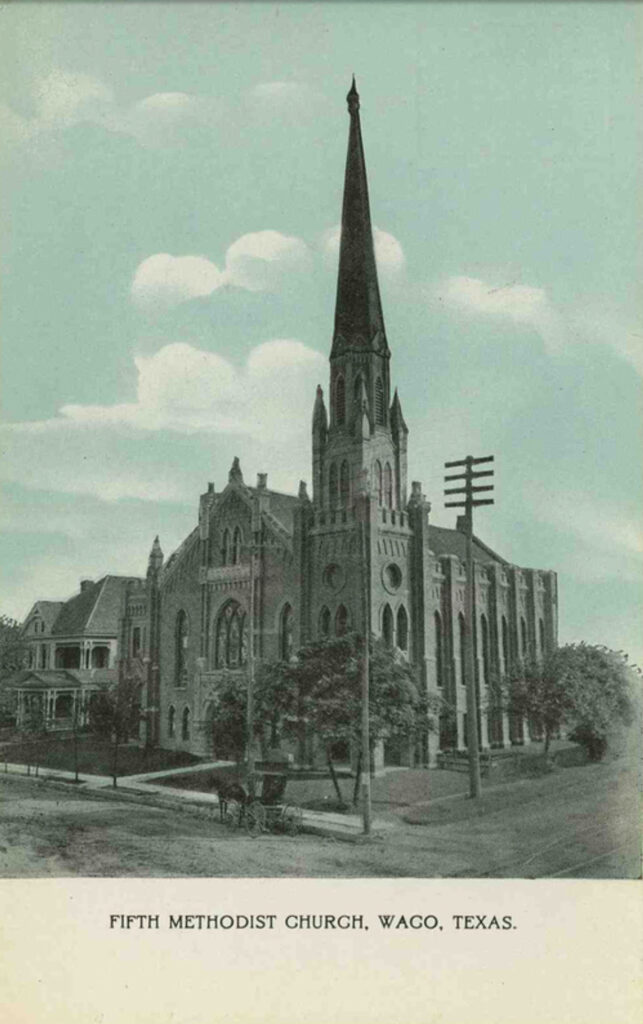
There are almost 200 different churches in the greater Waco area. The start of a new semester is the perfect time to travel between establishments, finding a spiritual home that fits your needs. After sampling denominational communities and pastors, taste test breakfast and brunch restaurants around town, such as Harvest on 25th, Our Breakfast Place on Franklin, or The Toasted Yolk on Washington.
https://spirituallife.web.baylor.edu/campus-ministries-church-connections/local-churches
Monday, September 9, 2024: Genealogy Research Walkthrough
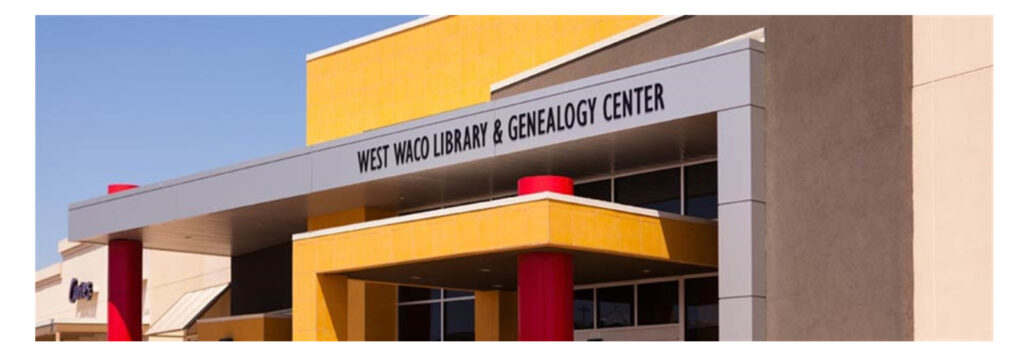
Does your family have deep ties to Texas or the Southeast? The West Waco Library and Genealogy Center is helping uncover and rediscover family histories from 12:00 pm to 1:15 pm on Monday. After searching through records of cemeteries, newspapers, and other archival sources, use the library space to get ahead with academic responsibilities. Study time is vital!
https://calendar.wacolibrary.org/event/11526027
Tuesday, September 10, 2024: Baylor Women’s Volleyball vs SMU
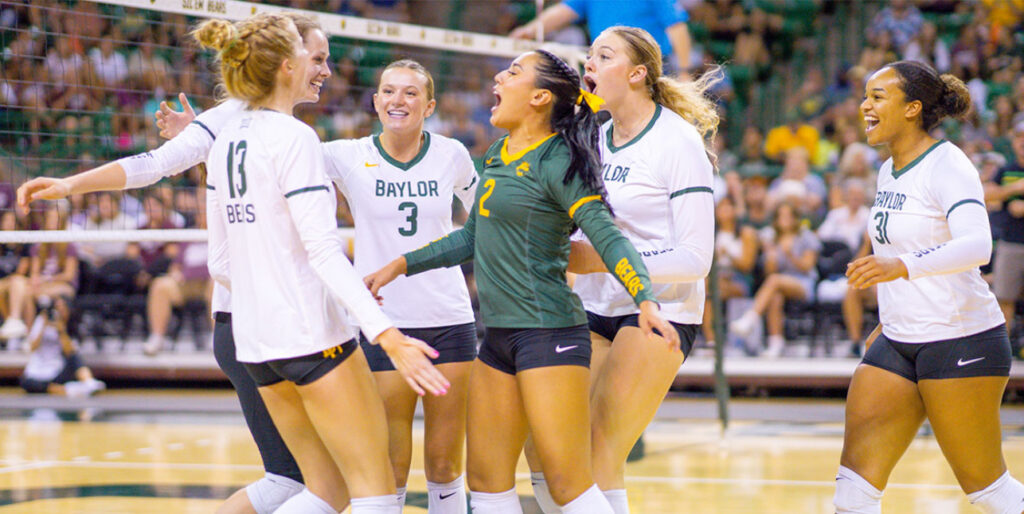
Baylor Women’s Volleyball takes on the ACC’s Southern Methodist University at the Ferrell Center at 7 pm. The women’s volleyball team has won all four of their opening games, and they are hoping to extend this winning record against the Big Ten/Big 12 Challenge opponents. Volleyball sporting season lasts until November. If you’re unable to catch this week’s match, check out the schedule to find a game for you!
https://baylorbears.com/sports/womens-volleyball/schedule/2024
Thursday, September 11, 2024: Outdoor Adventure Club takes on Archery
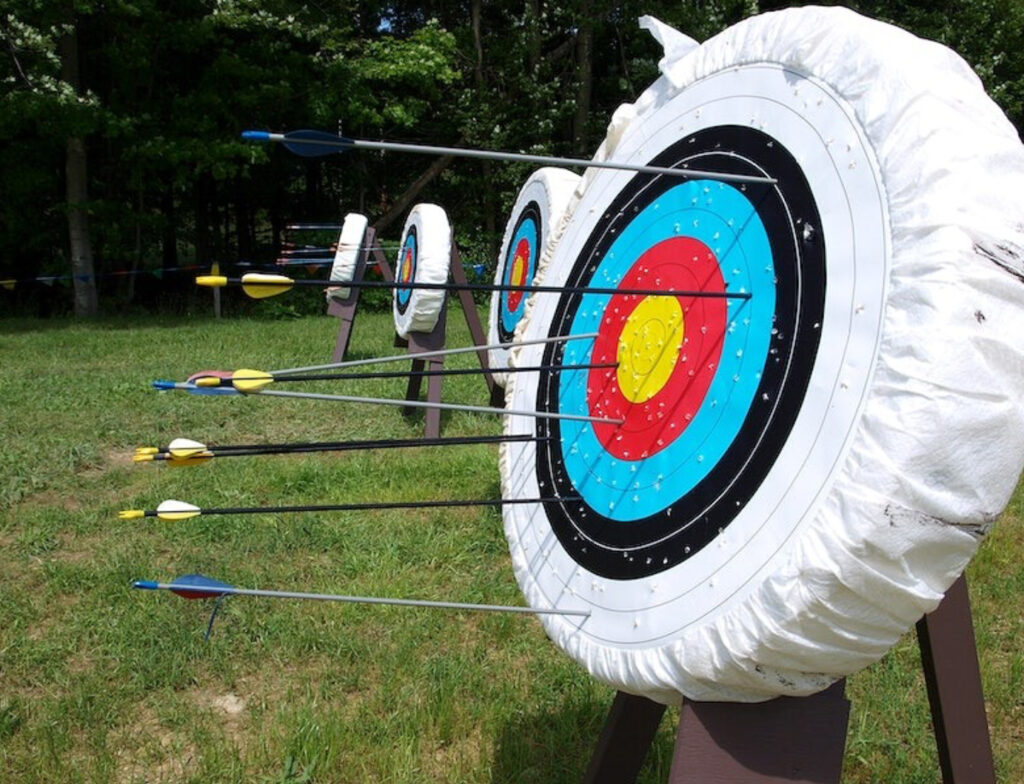
The Outdoor Adventure Club is taking on archery for their welcome back activity! Designated for kids ages 6-11, this program will teach general safety for shooting arrows, care and maintenance for owning a bow, and history of the sporting event itself. Safely practice what you learn with the Outdoor Adventure Club from 4:30pm to 5:30pm on Thursday.
https://calendar.wacolibrary.org/event/12124212
Friday, September 12, 2024: Premier of Waco Civic Theater’s production of A Midsummer Night’s Dream by William Shakespeare
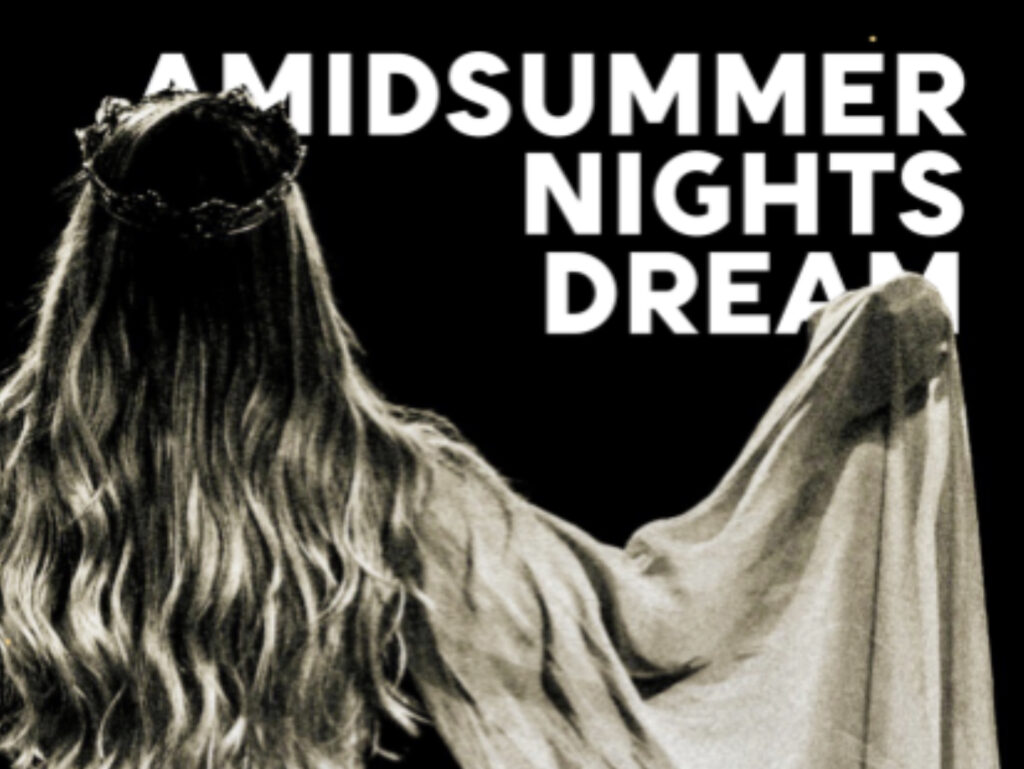
Love. Magic. Forests. Faries. From now until September 22nd, the Waco Civic Theater is performing the classic Shakespearean play, A Midsummer Night’s Dream. Tickets for the 7:30 pm show cost $22-$25, and they can be purchased online.
Baylor Family Weekend Begins
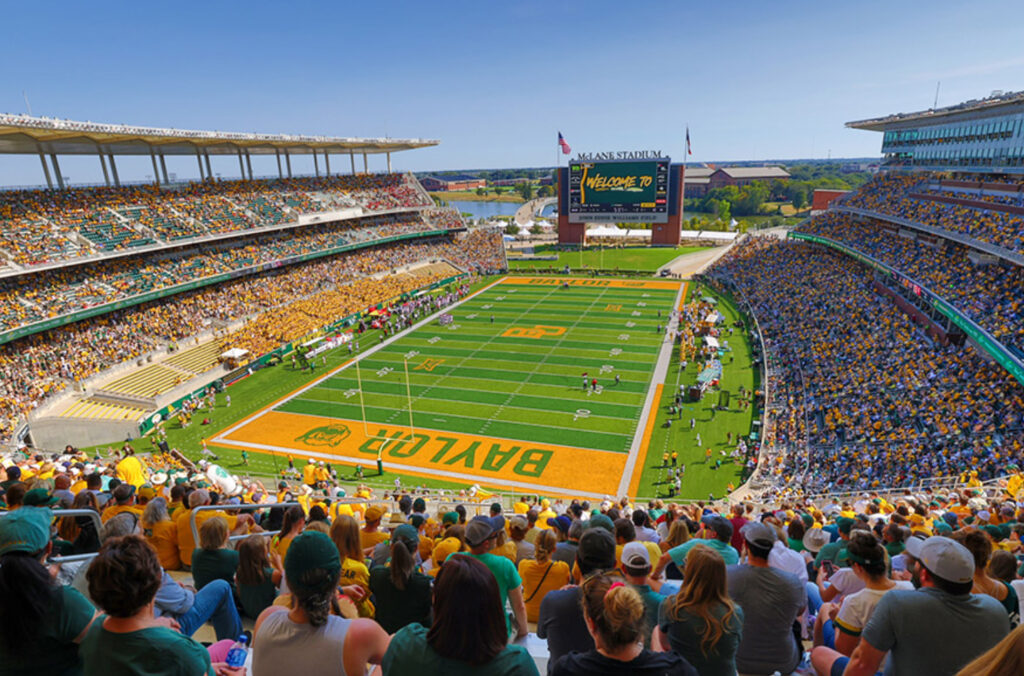
Friday kicks off Baylor’s Family Weekend, for which loved ones of current students are invited back to campus for festivities. This year’s activities include Taste of Waco food sampling, After Dark talent performances, and Vertical family worship. Baylor Football takes on Air Force at 6:30 pm on Saturday.
https://familyweekend.web.baylor.edu
Elizabeth Riley hails from Tennessee and is a senior studying English and Professional Writing & Rhetoric at Baylor University. She works as a Transcription Assistant at the Baylor University Institute for Oral History and is President of the Baylor Ice Girls for the 2024-2025 season.
A Celebration of Heritage and Diversity
by: Debrah Wright
Black History Month serves as an annual tribute to the remarkable achievements of African Americans, highlighting their pivotal role in shaping the nation’s history. In Waco, Texas, we proudly participate in this celebration, fostering a sense of community and understanding through a diverse array of events throughout the month.
Originating from “Negro History Week,” conceived by historian Carter G. Woodson and other influential African Americans, Black History Month gained official recognition in 1976, with every U.S. president designating February as a time to honor the contributions of African Americans.
Waco’s rich history is deeply intertwined with the presence and influence of African Americans, dating back to the mid-nineteenth century when the first black residents, initially brought as slaves, played pivotal roles in the region’s development. Post-Civil War, they actively worked to rebuild their lives as freedmen and freedwomen, contributing significantly to the growth of Waco and McLennan County.
From the historic HBCU Paul Quinn College to the Farmers Improvement Society advocating for equal treatment post-Civil War, Waco’s Black history is filled with inspiring narratives. All Waco residents and visitors alike can celebrate Black History Month by exploring Black-owned businesses and participating in various events and learning opportunities throughout February.
Highlighted events include a Ceremonial Groundbreaking for the Memorial to Enslaved Persons hosted by Baylor University on February 23 at 1:30 P.M. and a Black History Walking Tour led by experts from Baylor University’s Institute for Oral History on Saturday, February 24th.
Join experts from Baylor University’s Institute for Oral History as they lead you through Downtown Waco for its third annual Black History Walk. Gain insights into historic locations during this educated tour, where guides will highlight influential Black figures like Waco’s first Black mayor, the initial Black female mayor, and the late Commissioner Patricia Miller.
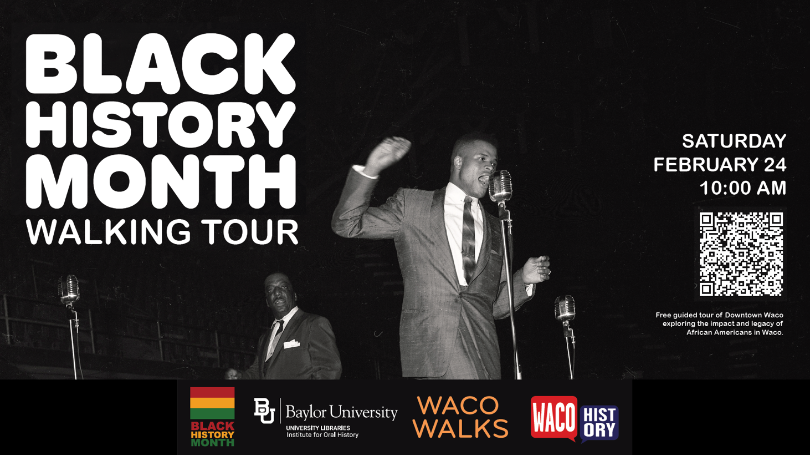
Notably, Waco’s Black history once thrived on Bridge Street, but after the 1953 tornado, business owners relocated to Elm Avenue. The walk commences at the McLennan County Courthouse in downtown on Saturday, February 24th, running from 10 a.m. to 12 p.m. Be part of this enriching journey uncovering the impactful stories woven into Waco’s historical tapestry.
Waco residents and visitors can also embark on a self-guided tour of Black history throughout the city, curated by Baylor’s Institute for Oral Histories and the Texas Collection. This tour, running from February 1 to 29, explores significant landmarks, churches, bridges, and businesses that contribute to Waco’s diverse heritage.
Additional events include “Black History in the Archives” on February 27th at 4 p.m., hosted by the Black Faculty & Staff Association and The Texas Collection at the Carroll Library, and an Afro-LatinX Cultural Heritage Celebration on February 28th, hosted by the Society for Advancement of Chicanos/Hispanics and Native Americans in Science at Baylor University in the Student Union Building at 5 p.m. There is also the Big XII Conference on Black Student Government, hosted by Iowa State University from February 29 to March 3, promises a series of engaging discussions and activities.
Explore the Mini Black History Museum at the Dewey Community Center before it closes on February 29th. The Dewey team has curated an excellent display, and the exhibit is available during the following hours:
Monday to Thursday: 9 a.m. to 9 p.m. (museum closed from 3 p.m. to 6 p.m.)
Friday: 9 a.m. to 3 p.m. (museum closed after 3 p.m.)
Saturday: 9 a.m. to 3 p.m.
Don’t miss the chance to immerse yourself in this enlightening experience celebrating Black history.
Furthermore, Creative Arts Experiences held throughout the month provide opportunities to delve into the works of influential Black authors, musicians, and theatrical performances.
Experience the enchanting melodies of America’s most original genre, jazz, with Baylor’s Concert Jazz Ensemble on February 29 at 7:30 p.m. in Jones Concert Hall, Glennis McCrary Music Building.
Join us in Waco as we commemorate Black History Month, embracing the past, present, and future of our diverse community.
Be Awesome Now and the Baylor Department of Wellness are partnering to sponsor the 2023 Fit & Well Expo 9 a.m.-2:30 p.m. Saturday, Feb. 11, at the SUB Barfield Drawing Room on the Baylor campus. The event will feature the following:

– Nutrition tips with Regina Mastin, Baylor Counseling;
– Fitness tips with Kelvin Robinson, HighPower Fitness;
– Pain-free training tips with John Weldon, D.P.T., Well Done Physical Therapy;
– Self-love tips with Emily Field, Refit Waco;
– Understanding “tripledemic” risks with Benjamin Ryan, Ph.D., Baylor Environmental Science;
– Wholeness & balance tips with Jon Singletary, Ph.D., Baylor School of Social Work; and
– Somatic yoga with Bianca Davis, East Meets West Training.
The Expo is free, and lunch will be included for the first 200 registrants. For more information and to register, click here.
By Baylor staff
The list of schools to make U.S. News‘ top 25 for both undergraduate teaching and undergraduate research is a short and impressive one – Dartmouth, Harvard, Princeton, Yale, Duke, Elon, Michigan, and Baylor.
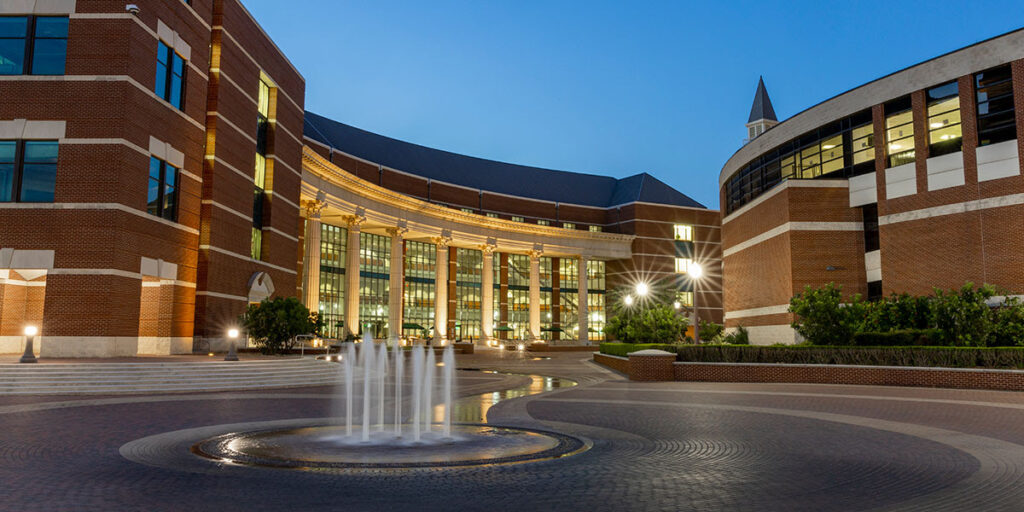
In their latest rankings, U.S. News put Baylor at No. 16 nationally for undergraduate teaching and No. 21 for undergraduate research/creative projects. No other Texas or Big 12 school made the top 25 in both categories; in fact, only Rice (No. 4 for teaching) and Texas (No. 19 for research) cracked the top 25 in either listing.
The teaching honor is nothing new for Baylor; undergraduate education has long been a hallmark of the university. Baylor’s growing research effort – as seen in the university’s recent R1 status – is making that undergraduate education even better, as professors bring cutting-edge knowledge gained in their research into the classroom, and undergrads get hands-on opportunities in labs across campus.
“It’s rewarding to have our peer institutions and others recognize Baylor’s high-quality undergraduate programs and how much we deeply value the undergraduate student experience,” said President Linda Livingstone. “Baylor is a Christian Research 1 university with a distinct and compelling mission, including providing our students with a transformational academic education and co-curricular experience that prepares the whole person for worldwide leadership and service.”
By Gracie Ozburn
Sandi Cooper, professor in the Baylor School of Education’s Department of Curriculum & Instruction, was selected as the 2022 recipient of the E. Glenadine Gibb Achievement Award. The award honors a member of the Texas Council for Teachers of Mathematics for contributions to the improvement of math education at the state and national levels. Cooper, Ph.D., received the award at the Conference for the Advancement of Math Teaching in San Antonio in the summer.
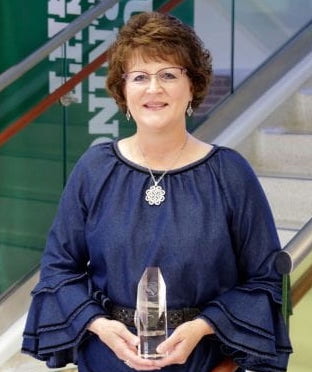
She was nominated by two Baylor colleagues — Trena Wilkerson, professor of mathematics education, and Ryann Shelton, lecturer in Baylor’s online Doctor of Education program in learning and organizational change.
“She is an outstanding colleague and offers significant leadership for the entire mathematics education community,” the nomination said. “She is an exemplary scholar, teacher, and leader.”
“It is an honor to work with [Cooper] in the Department of Curriculum & Instruction, and her vision and leadership continue to move our department and the University forward,” said Wilkerson, Ph.D. and interim chair of the Department of Curriculum & Instruction.
In 2016, Wilkerson received the award, which is named after E. Glenadine Gibb, former president of the National Council of Teachers of Mathematics and a leader in math education in Texas. Wilkerson said Gibb was known as a visionary. “I think that captures Dr. Cooper perfectly. She is a visionary!”
Cooper has been a longtime member of both the national and state math teachers organizations and served as president of Texas body 2017-2019. She was also president of the Central Texas affiliate 2012-2014.
She earned her Ph.D. in math education at Texas A&M University in 1994 and is professor of mathematics education, coordinator of mathematics education, and coordinator of the SOE’s minor in informal education. She was the founding program director of the online Ed.D. in learning and organizational change, Baylor’s largest doctoral program.
Cooper’s main research focus is related to early number development of children in PreK to second grade and the effectiveness of teachers who teach these early learners. She has applied her research to founding and leading the Math for Early Learners Academy, a summer intervention program launched in 2016 to provide positive learning experiences while developing early number concepts for children entering kindergarten and first grade. The MELA research team is developing a curriculum and assessments customized for early interventions.
In her acceptance speech at TCTM, Cooper spoke about how thankful she is for the recognition and for the hope and promise she saw in the roomful of math educators.
“I am honored,” Cooper said. “I became a math teacher in 1985, and I have loved every minute of it. We all know we are facing a crisis in education right now. When I look out and see you, I have hope. You are here spending your time learning, and you’re going to go back and take this information to help your school grow. Thank you for what you are doing in your classrooms and schools. You are really the true champions, and I am honored to be a part of this profession.”
A longer version of this story can be read on the Baylor School of Education’s Instant Impact page.
